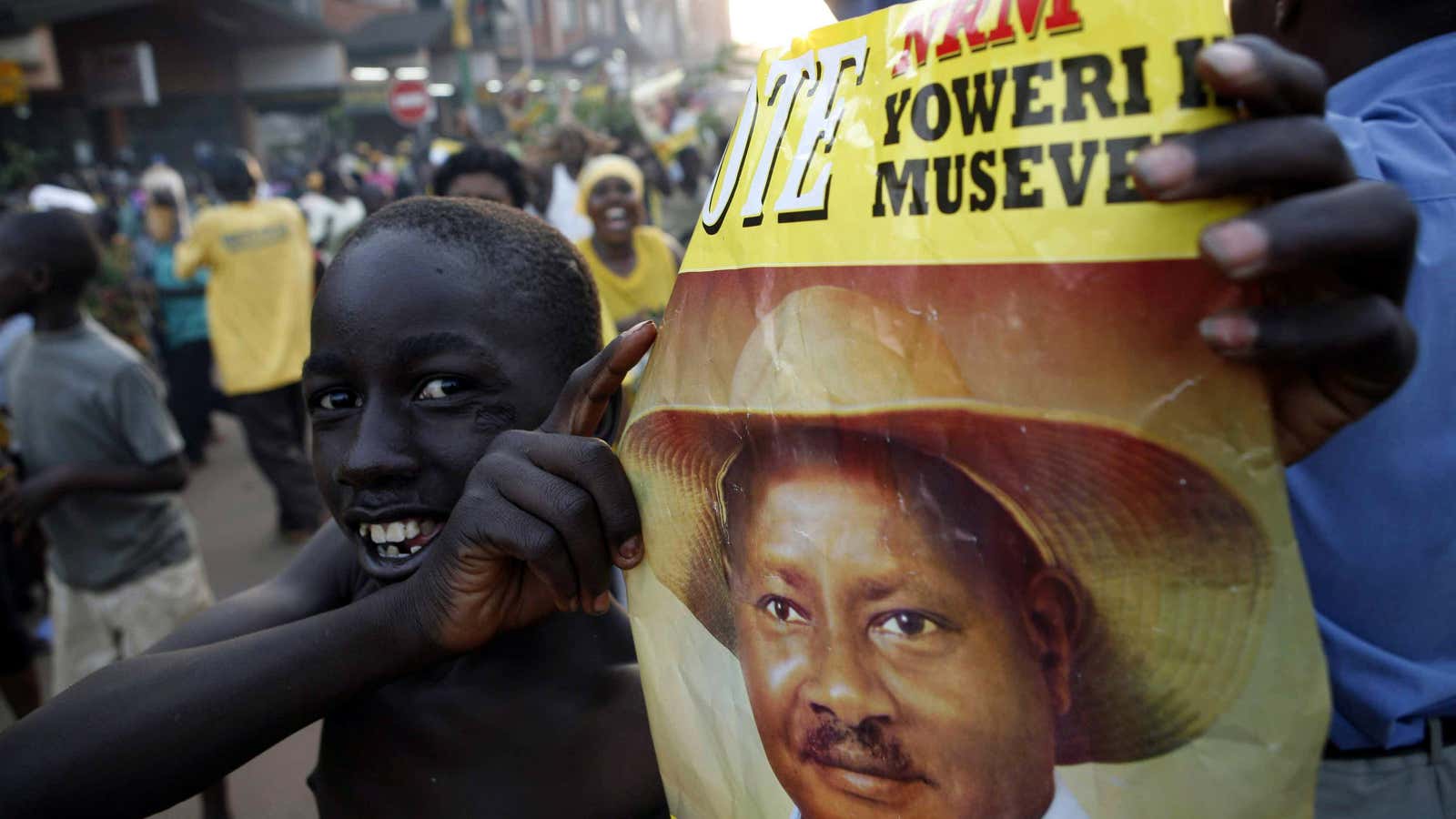When former Zimbabwe president Robert Mugabe, 93, was unceremoniously marched out of the office he held for 37 years, hope remained that the moment last month could be a turning point in Africa’s long history of “old men” running the continent.
Well, Mugabe was replaced by Emmerson Mnangagwa, a 75-year-old onetime loyalist to the ex-president.
This month in Uganda, after weeks of political wrangling, threats, intimidation and embarrassing fisticuffs, the parliament finally pushed through a change to the constitution which removes age limits for holders of the highest office in the land. The age limit had been 75. President Yoweri Museveni is 73.
Uganda’s president Yoweri Museveni, in office for five terms since 1986, seems likely to run for a term in 2021, when he’ll be 77. What originally started out to be a one-term presidency for the heroic guerrilla fighter soon turned into the same kind of “overstay in power” that Museveni himself once denounced as the reason for Africa’s slow progress. One of the many remarkable things about Uganda’s political environment is the fact that more than 75% of the country was born after Museveni came to power. Africa is the world’s youngest continent, with 60% of the Africa’s population under 25.
In fact, the delta between the age of some of Africa’s long-serving presidents and the median age of their citizens is remarkable. In Uganda it’s a whopping 57.5 years, while in Zimbabwe it’s now 55 (down from 73). That’s the same gap in Equatorial Guinea, where president Teodoro Obiang, 75, is Africa’s longest serving president. President Muhammadu Buhari of Nigeria turned 75 this month and the median age of Africa’s largest country by population is 18.4 years, meaning a gap of 56.6 years.
Some African countries have a reasonable age gap. Kenya’s is just 36.3 years while Ethiopia’s is 34.1, only slightly more than the US gap of 32.9 years.
Africa is a markedly young continent. Countries like Niger have a median age of 15 years while Uganda is 15.5. In contrast, the US has a median age of 38.1, UK of 40.5 and Germany of 47.
As events in Kampala and Harare show, the tradition of older presidents leading young countries isn’t going to change anytime soon. You could make the argument that there shouldn’t be upper-age limits on leaders who are of sound mind and body. In truth, the problem is really about the lack of term limits. Having run the country for 31 years so far, some might feel Museveni has had a fair crack at pursuing his agenda. He may not agree: Museveni says he is also open to the idea of Uganda’s five-year terms being extended to seven years to allow a president to properly complete a development agenda.
